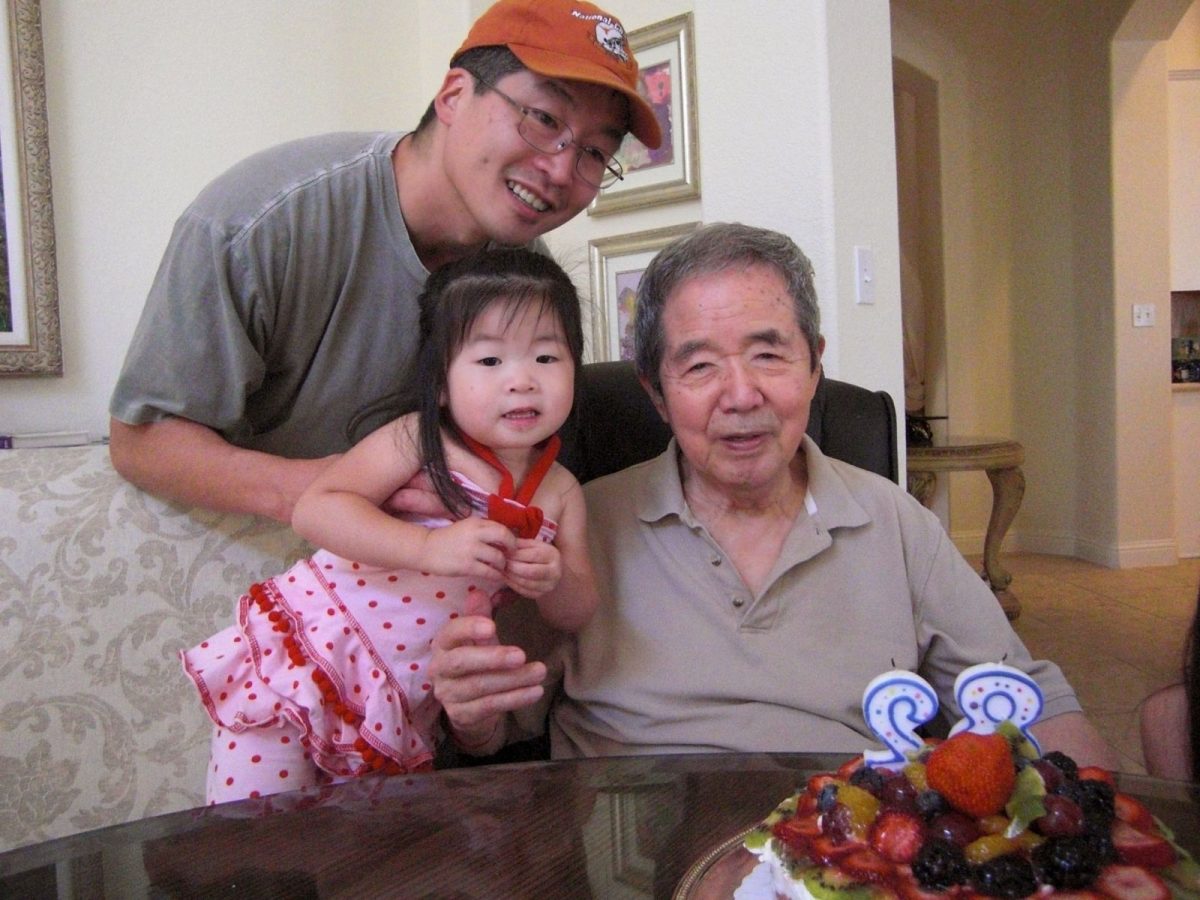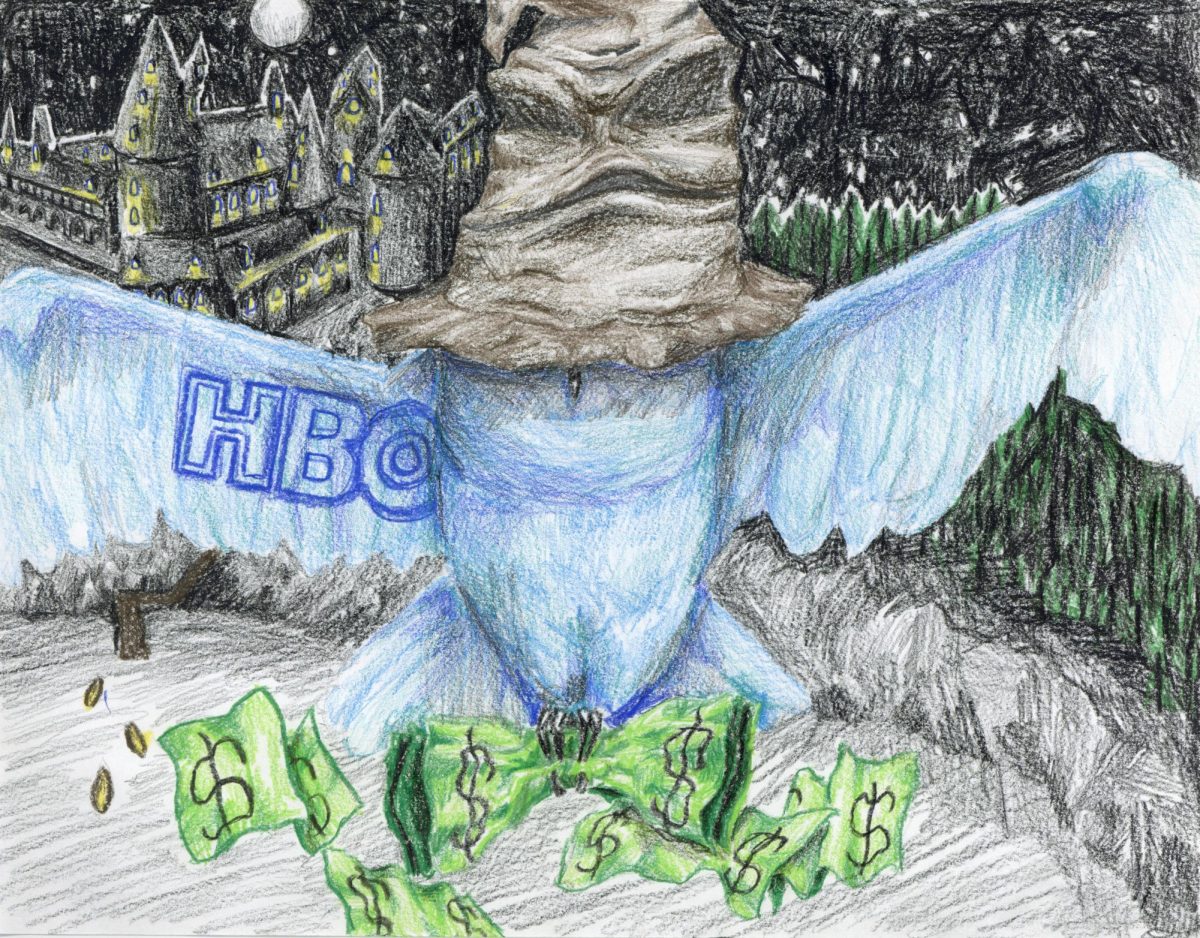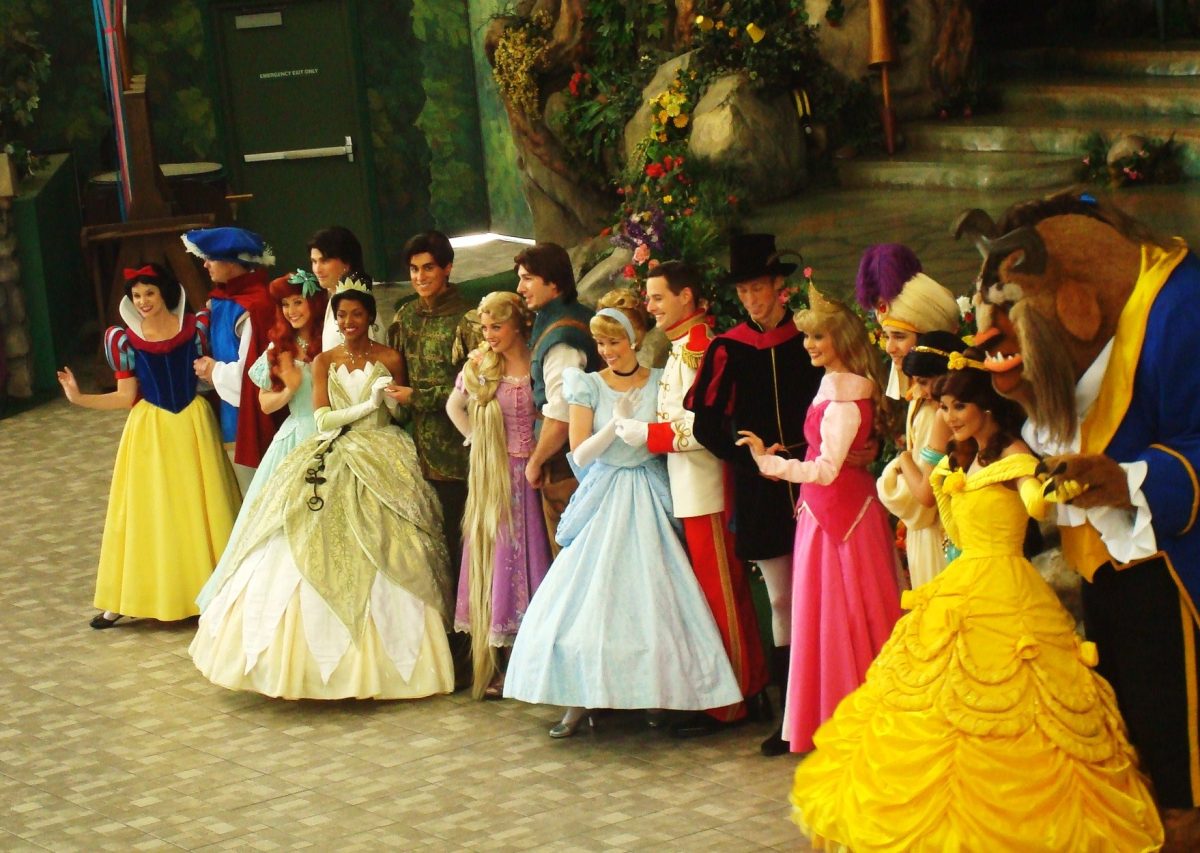I talk and talk and talk.
And almost nothing my dad says can shut me up. When I’m on a roll, I’m on a roll.
A change in topic from music to my homework waiting to be done? I’ll listen along, but soon enough I’ll be right back on the same track of my dilemma for my recently developed love of studying to the pop music my dad hates.
A joke doesn’t quite land? Nothing a shaky recovery or bad impression can’t handle.
Getting late? I’ll just ask for five more minutes and launch into an over dramatic retelling of the conversation about “looking like you brush your teeth in the shower” I overheard in third period.
Almost nothing can shut me up.
But one phrase does.
“Papa would be so happy to hear that.”
***
I push the solid but squishy toy zebra toward my sister Katie in the middle of the narrow entryway.
Katie and I play with the rubber objects living in Papa’s room.
We sit on the rough ground like we do each week. The door to the restroom stands beside me. Behind me and around the corner lies my grandpa. My dad, my mom and my grandma stand beside Papa, making small talk like usual.
Speaking words he’s not capable of answering.
I yawn and boredom begins to take over. I lost interest in my zebra game a few minutes ago. I can tell it’s dark outside through the only window in the room. We’re here later than usual. I’m tired. The thin green carpet’s itchy.
I want to go home.
I kiss Papa on the forehead and hug Nana goodbye. We leave, but my dad stays later.
Dad tells me Papa won’t wake up after I do the next morning.
***
Photos sit on the mantle and tables and counters.
My home is a gallery, a timeline, someone’s life on display.
I comb through photo after photo after photo, some I’ve seen before.
A man with glasses – who looks similar to Dad, but not entirely – smiling at the baby he holds.
A toddler on a man’s lap – they sit in the chair at the table that lives in my house. The toddler and the man ready to blow out the candles on a cake decorated with fruit.
Papa and I are the ones in the photos. But these memories aren’t mine.
My cousins from California enter my home – I greet them. People I don’t know follow.
People walk around in the same simple clothing. People talk with the same saddened, yet peaceful expressions. People gather to celebrate the same familiar man’s life.
I don’t know what the adults think of Papa, what they remember. I don’t know these people. I stay away from their conversations.
I navigate the crowd by following Katie. We trail Jennifer, Ashley, and Andrew – my cousins. Jennifer is 13 years older than me. Ashley 10. Andrew 9. They had 13, 10, 9 more years with Papa then I did. They knew a different person than I did.
They remember playing with him. Learning addition and subtraction with him. Doing homework with him. They have moments of life with him, just like all the people standing in my house do.
I don’t – I don’t know the man they and everyone else gathered to celebrate.
A hymn begins to play and the dozens of figures in black stand at once in the church. My dad approaches the front and speaks. My cousin speaks. Katie speaks.
People continue to share stories of a brilliant physics professor. Memories of a brother. Memories of a man raising a family. Memories of a man celebrating as his sons step into the role he once did – the role of a father.
But these memories aren’t mine.
My memories are of going up an elevator to the third floor, past a desk with nurses, to Papa’s small room just big enough for the five of us to file in. A small room where he lies without being too cramped. A small room a fourth of the size of Nana’s big apartment on the other side of Querencia that has an extra bedroom.
My memories are of running around Dad pushing a wheelchair as we walk through the halls. I thought being in a wheelchair, wheeled around everywhere, must be so cool.
My memories are of a nurse walking into our room, taking out a syringe similar to a larger version of the one my mom used to give me the bitter purple medicine when I fell sick. The nurse fills the tube with a brown liquid, connecting the syringe to the tube coming out of Papa’s stomach, pressing the liquid into the tube. After a few minutes, she leaves.
My memories are of giving him a kiss on the forehead every time I leave Querencia and head home.
I don’t remember him with glasses. I don’t remember him holding me. I don’t remember him eating anything other than the brown slosh the nurse always brought in.
I don’t know what his smile looked like. If his smile was obvious like Dad’s, or more gentle like Uncle Mike’s.
I don’t know what Nana and his conversations were like. If they spoke in Korean to each other like Halmi and Halbi – my mom’s parents. Or if their conversations were the nerdy discussions I might expect from two people who loved learning.
I don’t know what his voice sounded like.
All I know – he didn’t move, eat, speak and always had the same neutral expression.
The pictures scattered around my house are memories. But they’re not mine.
Parkinson’s started taking these memories from me before I began to walk.
***
I’m rambling again. About college applications. About physics and equations. About everything I want to do.
“Papa would be so happy to hear that,” my dad tells me.
I first heard the “Papa would be so happy” phrase eight years ago. I’ve since heard it and its variation – “Papa would be so proud” – many times. At Nana’s. At restaurants. At home where I lay on the floor talking.
And for the first time since I began hearing that phrase, I don’t turn away from the statement in embarrassment because of my fading memories of a man. A man who to me is just the shell of who everyone else knew.
“I always get sad thinking about him,” I say. “Because I don’t remember him.” And it might be the first time I admit the fact.
But I don’t tell Dad the entire reason the mention of Papa still hurts eight years later even though I knew him the shortest.
Reminders of a man I could talk to about the world and the science guiding it hurt because I never got the chance.
Reminders about Jennifer sitting at the kitchen counter – learning from someone so passionate he kept researching when he could have retired – hurt because I want to be the one sitting there. But I never was.
Reminders of my similarities to someone whose footsteps I want to follow hurt because I am reminded that I don’t know who I am following. Even though I should know him. Even though everyone else knows him.
But my dad doesn’t need to hear any of those reasons. He begins to speak anyway.
I get off the wood floor for the wooden chair so I’m closer to eye level with my dad. But I stare at the granite kitchen counter because I can’t look at my dad without crying as he begins to tell me story after story. Tears form anyways.
“Everyone always said he would win the Nobel Prize.”
Dad tells me about the first time Papa came to the United States. How he came to the U.S. to get his PhD from University of Minnesota because his education would be paid for. How Papa and Nana got a divorce on paper so they could both get Korean passports to come to America together.
Dad tells me about the time Papa got his job at East Texas State University because it paid more than his position at Seoul National University in Korea so he could better support his own family and his late-brother’s children.
Dad tells me about the high-energy physics research Papa did for his PhD, for his post-doc, as a professor, and later for the government.
Dad tells me about the time he got an 80% on the homework in Papa’s Mathematical Physics class while taking dual enrollment courses and the resulting review session at a kitchen counter.
“I took him aside and asked what he really wants, and he said ‘I what your mother wants,’” Dad says.
Dad tells me about when Papa first started getting sick.
About the first time Nana and Dad seriously thought Papa would die and they moved him from Independent Living to Assisted Living.
About when Papa got his hearing aids and when he couldn’t walk anymore.
About when Papa said yes to the surgery for the feeding tube, prolonging his life and suffering – simply because his wife wanted him to.
Dad tells me about who Papa was as a researcher and teacher. Tells me about who Papa was as a father, grandfather, uncle, before he was sick – and after.
I know these memories aren’t mine.
But I can only hope out there in heaven, Papa is proud and happy I have these memories.







